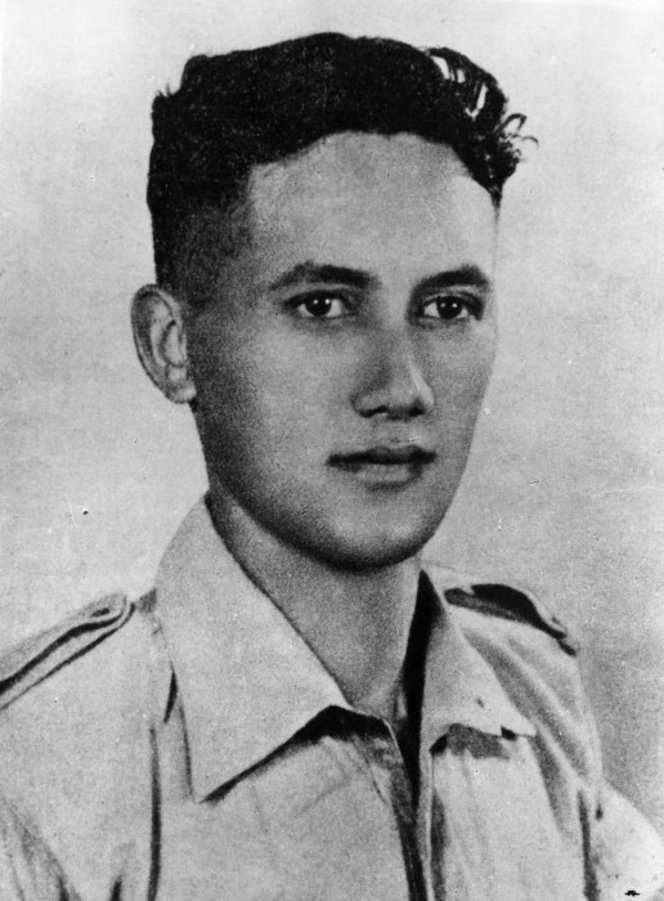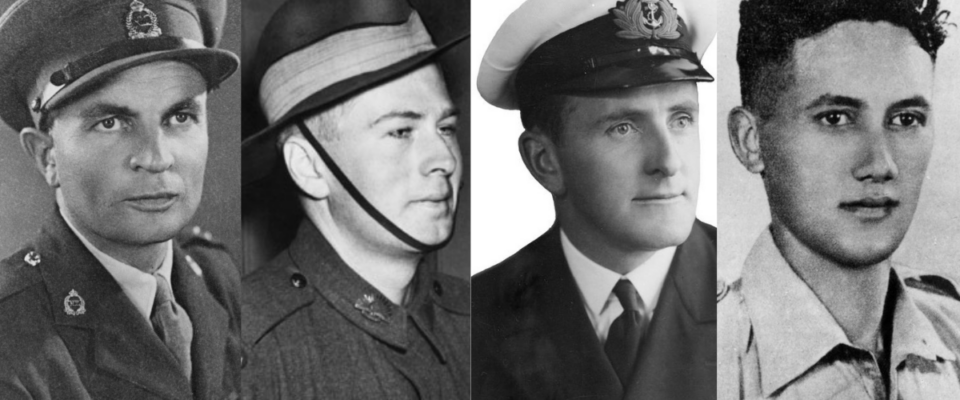The Victoria Cross (VC) is the highest and most prestigious military decoration awarded for valor “in the face of enemy” to members of the British Armed Forces and soldiers from various Commonwealth countries.
During World War II, 182 Victoria Crosses were awarded to soldiers, airmen and sailors who performed exceptional acts of bravery. Their stories are incredibly inspiring and demonstrate their ultimate devotion to duty in the presence of the enemy.
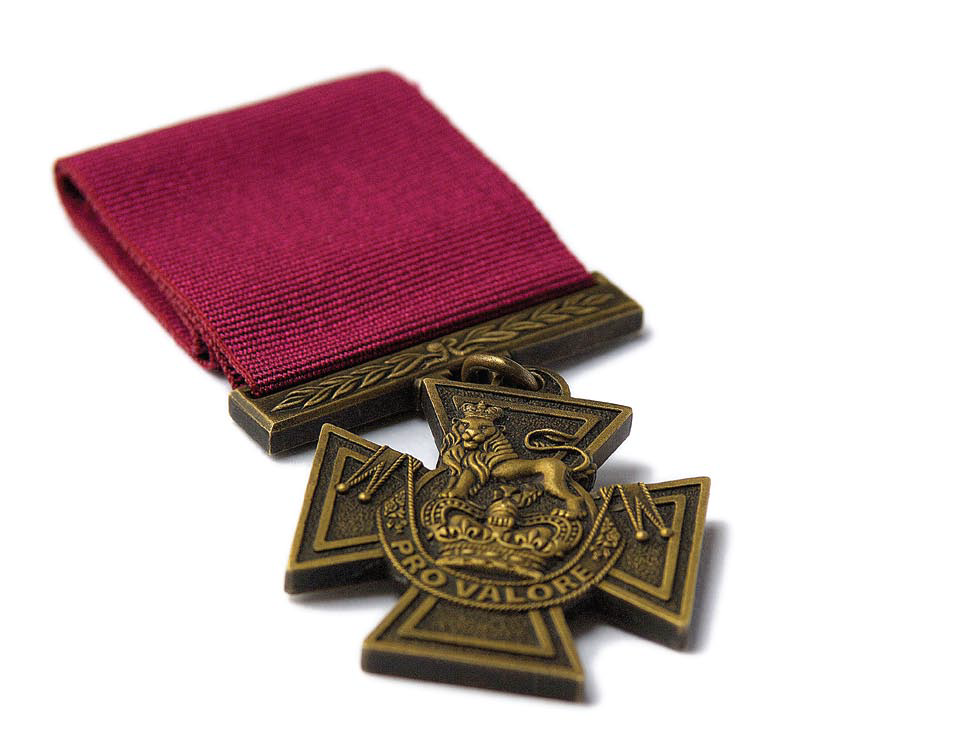
Here are 4 recipients of the Victoria Cross during World War II:
1) Captain Charles Upham
Captain Charles Upham of the New Zealand Military Forces was awarded the Victoria Cross twice during the Second World War. He was one of only three people to have ever received the Victoria Cross twice and the only person to have received two Victoria Crosses during World War II. As a result, he is often regarded as the most highly decorated Commonwealth soldier of the war.
In May 1941, Captain Charles Upham, performed “a series of remarkable exploits” over nine days during the bloody Battle of Crete. During an attack, he single-handedly engaged an enemy machine-gun post at close proximity with his pistol and grenades. Later, he crawled within 15 yards of another post and killed the gunners before carrying away his wounded men under fire. Upon receiving his first VC, Captain Upham responded “It’s meant for the men,” as he believed that others were more deserving of the award than himself.
More than a year later, for his efforts during the First Battle of El Alamein, Upham was awarded his second Victoria Cross. Captured during this battle, he had spent several years as a prisoner of war. In 1944, an attempted to escape the camp’s barbed-wire fences in broad daylight saw Upham transferred to the infamous Colditz camp.
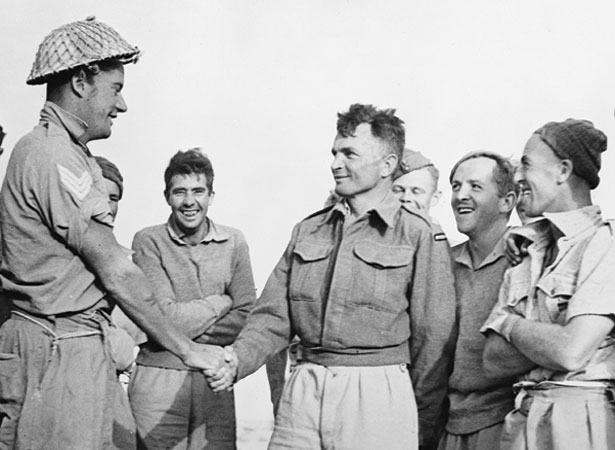
2) Private Frank Partridge
Private Frank Partridge of the Australian 8th Battalion was awarded a Victoria Cross for his outstanding bravery during one of the last actions of the Bougainville campaign. On 24 July 1945, two platoons of the 8th Battalion attacked a Japanese post near Ratsua. In response, Partridge’s section came under heavy machine-gun fire and suffered extreme casualties, including a Bren gunner who was killed. Despite being wounded in the arm and leg, Partridge retrieved the Bren gun and began shooting at the nearest Japanese bunker. He then advanced forward, armed with only a grenade and a knife, and silenced the Japanese machine-gun with his grenade. He then killed the only remaining occupant of the bunker with his knife.
Private Frank Partridge was the youngest Australian to receive a Victoria Cross in World War II. He was also the first Australian Militiaman to receive the award.
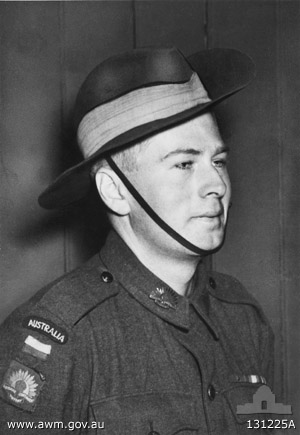
3) Lieutenant-Commander Gerard Roope
Lieutenant-Commander Gerard Roope of the Royal Navy was the recipient of the first Victoria Cross to be awarded in World War II. His award is one of the very few to have been justified, in part, from a recommendation by the enemy.
On 8 April 1940, the destroyer HMS Glowworm, commanded by Roope, successfully engaged two enemy destroyers in the Norwegian Sea. When both destroyers retreated towards German capital ships, Roope pursued them, even though he knew that their retreat was strategic in drawing him towards the enemy ships. He spotted the German cruiser Admiral Hipper, a hugely superior warship, and fired ten torpedoes. However, he scored no hits and Glowworm was soon pounded by enemy rounds and set ablaze. With only three guns remaining, Roope responded by ramming the enemy cruiser, gouging several holes in her hull and destroying her forward starboard torpedo mounting. Glowworm then fired once more before eventually capsizing. Of the crew of 149, only one officer and 30 men survived who were courteously recovered by the Admiral Hipper. Roope drowned while assisting in the rescue of the survivors.
The commander of Admiral Hipper, Kapitän zur See Hellmuth Heye, wrote a letter to the British authorities recommending Roope to be awarded the Victoria Cross for his incredible bravery in engaging a hugely superior warship.
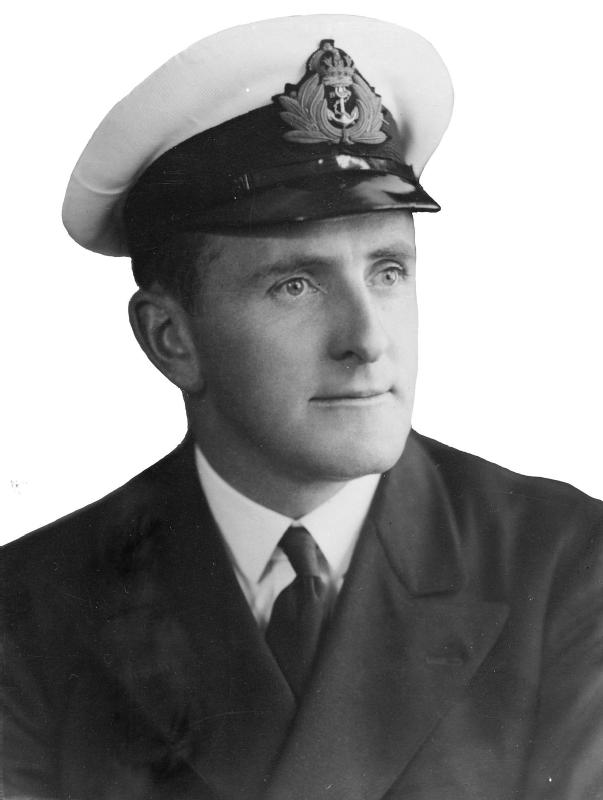
4) 2nd Lieutenant Moana-Nui-a-Kiwa Ngarimu
Moana-Nui-a-Kiwa Ngarimu was a New Zealand soldier and posthumous recipient of the Victoria Cross. He was the first Māori person to be awarded a Victoria Cross.
By March 1943, the African campaign had moved to Tunisia. 2nd Lieutenant Moana-Nui-a-Kiwa Ngarimu of the 28th Maori Battalion was tasked with capturing a German-held hill called Point 209. He led his men up the slope and captured what was believed to be the summit of Point 209. It then became apparent that it was not the summit as initially presumed but was a feature lower on the slopes of Point 209. Intense fighting ensued as the Germans desperately tried to drive Ngarimu’s troops off the hill. Twice wounded, Ngarimu continued to lead his troops in defending their position and singlehandedly destroyed two machine-gun posts. He fought hand-to-hand against the Germans, through the night, rallying his men until only three remained.
Reinforcements arrived the next morning, but Ngarimu was killed while defending a final counterattack.
